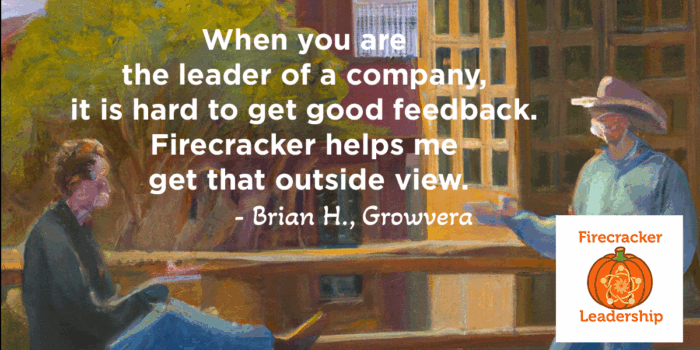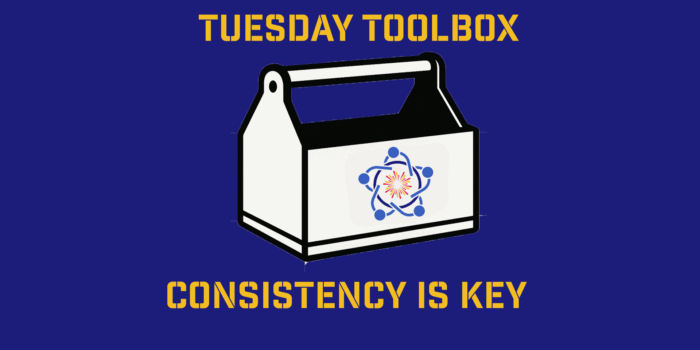Inc.com shares 8 phrases we shouldn’t say. Are you using any of them?
BY BILL MURPHY JR., WWW.BILLMURPHYJR.COM @BILLMURPHYJR
Recently, I wrote two articles about emotional intelligence here on Inc.com (this article and this one) that got a lot of attention.
I heard from business leaders afterward, from students, and even from a youth minister who had printed one of the articles and shared it with teenagers in a juvenile detention center, where he led them in a discussion about emotional intelligence and language.
Readers speak; I listen. One of the simplest ways to improve emotional intelligence is to learn specific phrases that are more likely to inspire positive emotional reactions.
A corollary to that is to learn other phrases that people with high emotional intelligence learn to not to say. Here are eight of these phrases to get us started, along with why you might be better off avoiding them:
1. “You have no choice.”
There are two big problems with this phrase.
The first is that it’s usually not true. People almost always have choices. You might not like all of the choices they could make, and some choices might objectively be much better or healthier than others, but they do have choices.
(Valuable aside: This applies to you too when you think you don’t have a choice. You almost always do.)
The second problem is that when you tell someone they don’t have a choice, it’s often because you want them to do whatever you want. Paradoxically, by bringing unnecessary emotion into the conversation, you make it harder for them to make the choice you hope they will.
- To a child: “You have no choice! You have to go to that school.”
- To an employee: “You have no choice! You’d better be here at 7 a.m. on Sunday.”
- To a customer: “We’re the only supplier in the market, so you have no choice; you have to buy from us!”
Even if you convince them to comply in the short term, it’s almost as if you’re simultaneously trying to persuade them to rebel in the long term. That’s why people with high emotional intelligence stay away.
2. “It’s not hard.”
I’ve devoted an entire 700-word article to this phrase in the past, so I’ll just summarize the problem briefly.
In short, people tend to say “it’s not hard” in challenging conversations in order to put the other person down, or suggest insincerely that the problem he or she raises isn’t legitimate.
- Don’t make enough money? “It’s not hard; just make better decisions.”
- You want to lose weight? “It’s not hard; just eat less and exercise more.”
- Trying to improve emotional intelligence? “It’s not hard; just revamp the entire way you look at the world.”
Are there exceptions? Of course; there are exceptions to everything. If you’re really trying to build someone’s confidence, it might not be so bad.
Although, even telling someone “it’s not hard” when you’re trying to help them overcome a fear, for example (“I’m sure you can do this. It’s not hard!”) might not be the most emotionally intelligent choice.
Often enough, however, “it’s not hard” is a verbal red flag that tells you that whatever the person says next will be either disingenuous or even intentionally unhelpful.
3. “Sorry.”
In short, don’t say you’re sorry. Say, “I apologize.”
Sorry is a state of being, or perhaps an adjective depending on how you use it. Making an apology, on the other hand, means taking an action. It’s more active and powerful.
Plus, in modern usage, we’re skeptical of “sorry.” There are just too many people who use “sorry” as a weasel word to get out of truly apologizing.
One more reason: “Sorry” can suggest that you can be convinced to do things you don’t actually want to do. (“I’m really sorry I can’t come to your house while you’re away to walk your dog for free and water your plants.”)
You don’t need the ambiguity. Neither do they. People with high emotional intelligence will know to say either that they apologize, or that they don’t.
4. “That reminds me…”
This one gets a bit of an asterisk, because people use it innocuously all the time.
“I forgot to remember to pay my phone bill.”
“Oh! That reminds me! I have to pay my credit card bill before the due date!”
Where people with high emotional intelligence seek to avoid it, however, is in more substantive conversations where another person shares a point or an experience. Beginning your response with a phrase along the lines of “That reminds me” often means you’re shifting to a completely different point.
“Tough week at work. I used to like my job, but now I have an incompetent new employee who is driving me crazy, and I realized that that his father is on the board of directors.”
“That reminds me of years ago when I had just been promoted and….”
I’m not even going to finish the anecdote, because it’s almost certainly irrelevant. It leads to what we call a parallel response as opposed to a convergent response, which is something people with high emotional intelligence try not to create.
Basically, it risks signaling to the other person that you have no insight, advice, or even empathy for what they’ve shared. You might not even have been listening.
5. “Someone has to tell you…”
As a one-time English major, I like this example of what-not-to-say because it’s illustrated by a grammatical rule. Consider two sentences:
- Sentence A: “Your shoe is untied.” The subject of this sentence is “your shoe.” Innocuous, right?
- Sentence B: “Someone has to tell you that your shoe is untied.” The subject of this sentence is no longer “your shoe.” Instead, it’s “someone.” And since I am the person relating the sentences, the “someone” is me.
Almost any time you give advice, or make an observation, or do almost anything else with a “someone has to tell you” phrase in front of it, you’re sending a signal that you think you’re the center of the story.
That carries with it all kinds of interfering emotional messages, which is why people with high emotional intelligence don’t do it.
We’re already almost 1,000 words into this article, and I feel like I could go on forever, especially since I’ve learned to avoid most of these toxic phrases the hard way during my time on this planet, and I hope to help others avoid my mistakes. So let’s just touch on a few others briefly:
6. “I know how you feel.”
At the outset, it’s almost impossible to truly know how someone else feels. We all know that on some level, and so this phrase can actually imply lack of understanding instead of compassionate comprehension.
Just as important, much like “someone has to tell you,” it makes clear that you, not the other person, are the center of the story as you see it.
Certainly, you have the right to see things however you’d like. But people with high emotional intelligence understand that the entire point is to leverage emotions in order to make it more likely you’ll achieve your goals.
So why use language that might prompt a counterproductive emotional reaction, if you can avoid it?
7. “Can’t you just…”
This phrase is the second cousin of “it’s not hard,” suggesting that there’s a simple solution to whatever problem the other person describes, and sometimes implying that the other person is deficient for not seeing it.
Like so many other phrases on this list, the fact that you preface even the best advice with “can’t you just” can paradoxically make it harder, emotionally, for whomever you’re talking with to take your suggestions.
Maybe you think they’re weak or overly sensitive for taking it personally. But people with high emotional intelligence tend to understand: If you want someone to follow the path you lay out for them, why use phrases that make it more difficult for them to do so?
8. “I don’t want to fight, but …”
You know what? I’m going to bet you do want to fight. Or at least, you think whatever you say next is likely to start a fight. The person or people you’re talking with understand this as well. If emotion kicks in, paradoxically, you might be more likely to wind up in a fight than if you’d said nothing.
Thus, emotionally intelligent people know not to say it — unless they actually do want to get into a fight.
And why would you want to do that?
We could go on and on with many more examples. That’s why I have an entire free e-book devoted to this kind of subject called 9 Smart Habits of People With Very High Emotional Intelligence.
Sure, emotional intelligence can seem hard. But I’ve found that thinking about what to say and what phrases to avoid can make it easier. Maybe it can work for you, too.



